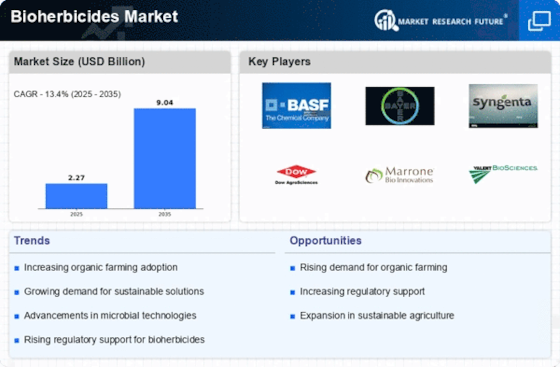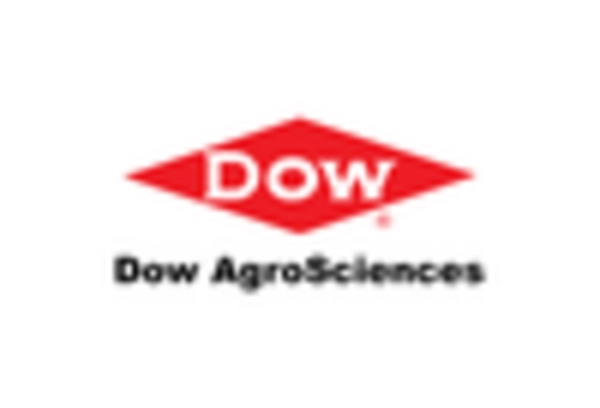Market Share
Bioherbicides Market Share Analysis
Bioherbicides market trends reflect changing agricultural dynamics and the increased emphasis on sustainable weed management.This tendency follows the industry's move toward sustainable agriculture and the rising awareness of traditional weed management's environmental impact.
Bioherbicides are also growing due to the push toward organic and ecological farming. Organic gardeners need bioherbicides to control weeds without compromising their systems. Organic product demand is rising, necessitating sustainable weed control technologies that follow organic farming practices.
Another major bioherbicides industry trend is worldwide integrated weed management (IWM). IWM integrates cultural, mechanical, and pesticide approaches to manage weeds holistically. Bioherbicides' compatibility with various weed control tactics helps integrated approaches succeed. This tendency is important as farmers seek comprehensive and sustainable solutions to herbicide-resistant weeds and reduce weed control's environmental effect.
Bioherbicide formulation improvements and technical advances are also propelling the market. Bioherbicide manufacturers are spending in R&D to increase efficacy, stability, and application. Advanced formulations are improving shelf life, weather resilience, and agricultural compatibility, making bioherbicides more feasible and widely adopted. These developments offer farmers sustainable, effective alternatives to petrochemical pesticides, changing weed management.
The industry is also seeing more bioherbicide firms partnering with agricultural research organizations. This partnership intends to improve bioherbicide processes, optimize formulations, and perform field studies to evaluate efficacy in diverse cropping systems. Such partnerships promote science-based solutions and increase sustainable weed management expertise.
In conclusion, the bioherbicides market is driven by eco-friendly alternatives, organic and sustainable farming, integrated weed management, bioherbicide formulation advances, and research and development collaboration. These trends show how the industry is meeting the demand for effective, eco-friendly, and sustainable weed management. As the global agriculture sector evolves, Bioherbicides market stakeholders may face new possibilities and difficulties in addressing farmers' aspirations for novel and sustainable weed management solutions.


















Leave a Comment